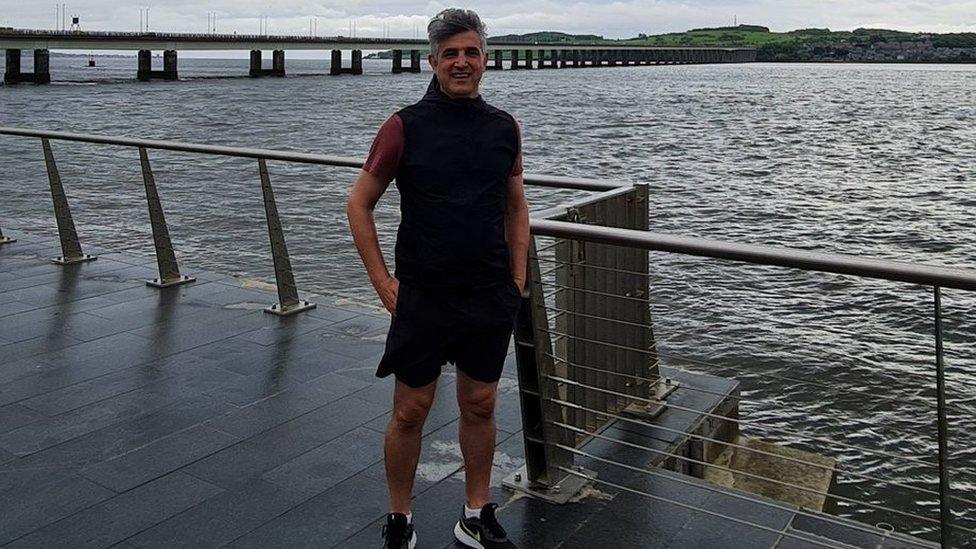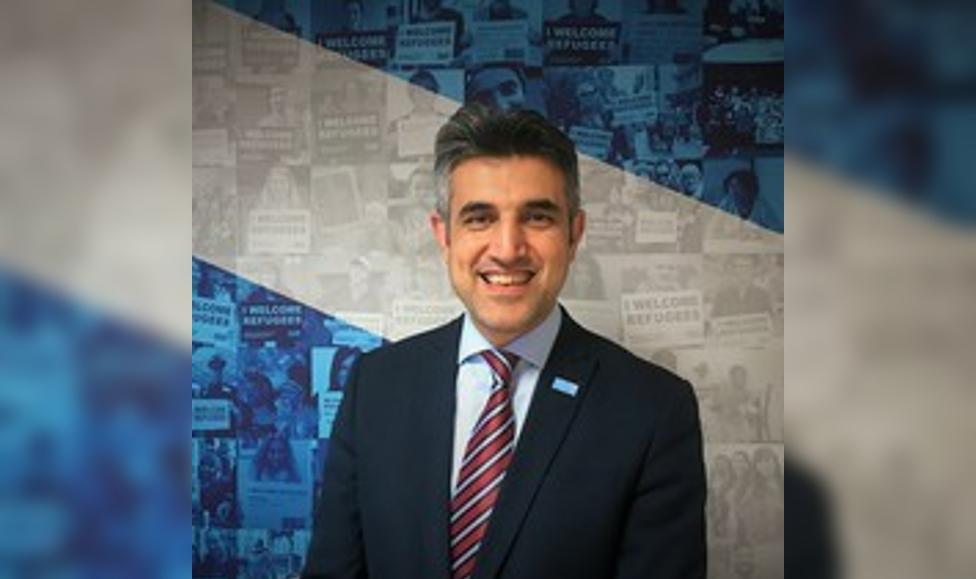Coventry asylum seeker who now heads charity appointed OBE
- Published

Sabir Zazai has enjoyed a successful life in the UK since fleeing Afghanistan in 1999
A man who came to the UK as an asylum seeker and is now head of a charity has been appointed OBE.
After fleeing Afghanistan, Sabir Zazai arrived in Coventry in the back of a lorry in 1999. He now leads the Scottish Refugee Council in Glasgow.
Dr Zazai's first job in Coventry was in 2002, working with refugee children in primary education.
"I never came to the UK in search of an honour, I came for safety, dignity and protection," Dr Zazai said.
"This honour is for all the people who welcomed me in Coventry," he added.
Dr Zazai said he arrived in Britain aged 24 in a "very difficult situation".
'Never looked back'
The activist said he only had seven years of formal education at the time and had to start his life from scratch.
He went on to Coventry Technical College to learn English and eventually to Coventry University, where he completed a degree and a masters. He said he had "never looked back".
After many years in the city, leading the Coventry Refugee and Migrant Centre, a charity that once assisted him, he moved to Scotland in 2017.

Dr Zazai said he was a "proud Coventarian"
"I am immensely grateful to all my colleagues and at Scottish Refugee Council and many partners with whom I have worked closely to secure rights for refugees," Dr Zazai said.
He said he and his team worked together to secure the right for refugees to vote in Scottish parliamentary and local elections.
"There are over 100 million people forced to flee their homes; some are arriving in the UK in the same circumstances as I did.
"They are facing the prospect of being sent on a flight as soon as 14 June to Rwanda," Dr Zazai said.
The activist said he was no different to any other refugee, and everyone seeking protection in Britain brought their own "unique gifts and talents".
Under the government's scheme, some asylum seekers who have arrived in the UK are to be sent to Rwanda where their applications will be processed. They will be given accommodation and support and, if successful, they will be able to remain in Rwanda with up to five years' access to education and support.
The plan has been criticised by politicians, charities and the Archbishop of Canterbury, who described it as the opposite of God's nature.

Follow BBC West Midlands on Facebook, external, Twitter, external and Instagram, external. Send your story ideas to: newsonline.westmidlands@bbc.co.uk
- Published1 June 2022
